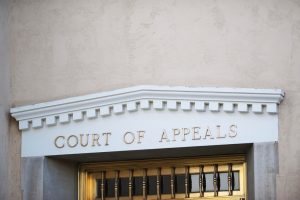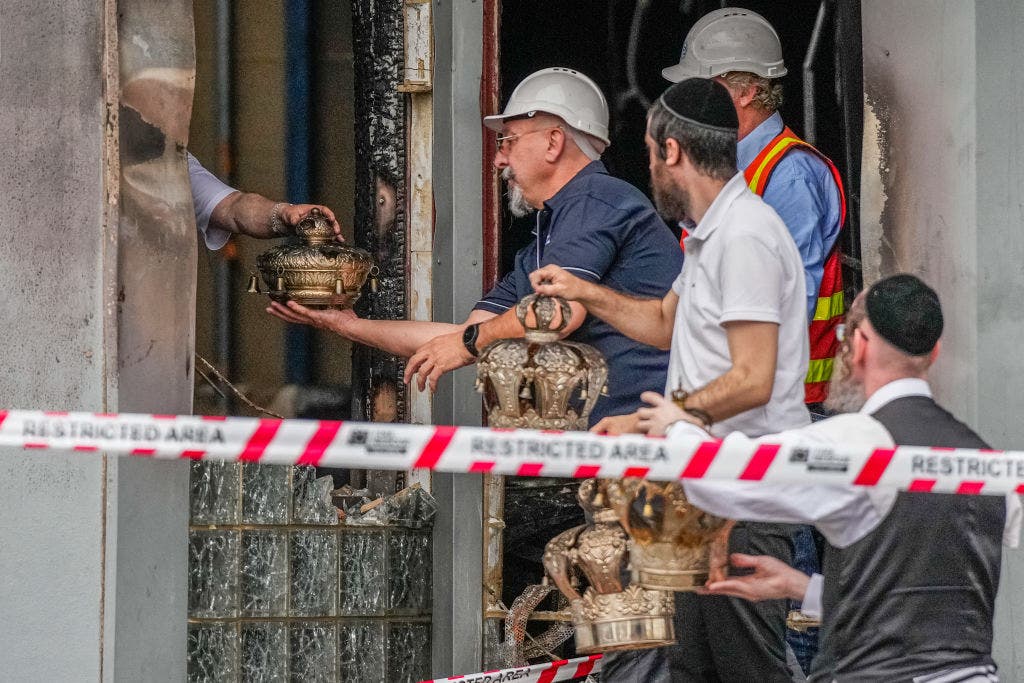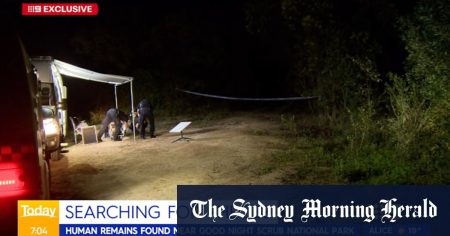The Jewish community in Australia is grappling with a surge in antisemitism, highlighted by the devastating arson attack on the Adass Israel Synagogue in Melbourne, an incident now being investigated as a potential act of terrorism. This attack follows a series of other disturbing incidents, including the firebombing of a car and vandalism of buildings within a Jewish community in Sydney, where graffiti containing threats against Israel was discovered. These acts of hate underscore a growing climate of fear and anxiety among Jewish Australians, prompting calls for increased government intervention and protection. The timing of these incidents, coinciding with escalating geopolitical tensions involving Israel, has further fueled concerns about the safety and security of Jewish communities worldwide.
The Melbourne synagogue attack, witnessed by worshippers inside, involved masked vandals setting the building ablaze. The incident left the community shaken and questioning their safety, particularly given the initial response of law enforcement, which involved briefly detaining worshippers before realizing they were not the perpetrators. Adding to the community’s distress, they felt unsupported by local authorities, voicing their concerns about the lack of police presence and protection in the area. The attack, which targeted a non-Zionist Haredi Jewish community, underscored that antisemitism often transcends specific religious or political affiliations within Judaism.
The response from Australian government officials has been met with mixed reactions. While Prime Minister Anthony Albanese visited the damaged synagogue and condemned the attack, some have criticized his response as delayed and insufficient. His efforts to address antisemitism more broadly, including allocating funding for security measures and working to curb hate speech, have been deemed inadequate by some within the Jewish community. The Executive Council of Australian Jewry (ECAJ) has formally requested increased support from the government, emphasizing the need for enhanced security funding, antisemitism education in schools, stricter enforcement of anti-harassment laws, and efforts to combat antisemitism in universities.
The recent increase in antisemitic incidents across Australia has been stark. Reports from the ECAJ reveal a staggering 316% rise in anti-Jewish hate incidents in the past year, compared to the preceding 12 months. These incidents range from vandalism and graffiti to verbal harassment and even documented threats. The spike in antisemitism appears to correlate with the escalation of violence in the Middle East and inflammatory rhetoric both domestically and internationally. The ECAJ has compiled evidence of these incidents, including photographs of antisemitic graffiti and reports of targeted harassment, underscoring the urgent need for action to protect the Jewish community.
The Australian government has taken some steps to address specific instances of antisemitism. Following the release of personal details of hundreds of Jewish individuals online, Attorney-General Mark Dreyfus proposed legislation to increase prison sentences for such acts, particularly when motivated by prejudice related to race, religion, or sexual orientation. However, the Jewish community feels these measures are insufficient to address the broader issue of rising antisemitism. The Simon Wiesenthal Center, recognizing the escalating threat, issued a travel advisory warning Jews to exercise extreme caution when visiting Australia, citing the failure of authorities to effectively combat the growing wave of anti-Jewish sentiment.
The situation in Australia reflects a global trend of increasing antisemitism, coinciding with heightened geopolitical tensions related to Israel. The rise in hate incidents, coupled with perceived inadequacies in governmental responses, has left the Jewish community feeling vulnerable and seeking stronger measures to protect their safety and security. Moving forward, tackling this challenge requires a multifaceted approach involving increased security measures, educational initiatives to combat prejudice, and robust enforcement of anti-discrimination laws, as well as a broader societal effort to foster understanding and tolerance. The rising tide of antisemitism in Australia underscores the urgent need for immediate and decisive action to safeguard the Jewish community and uphold the values of a pluralistic and inclusive society.










